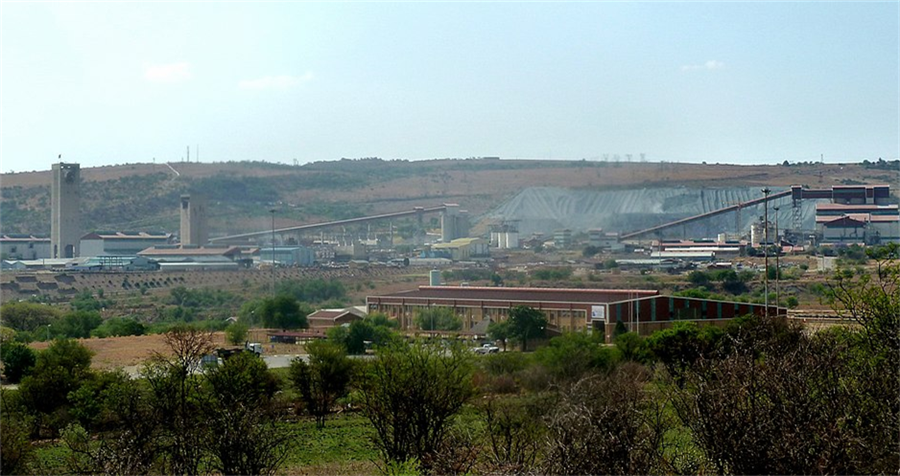Harmony Gold’s rebounding profits give hunt for acquisitions fresh impetus

South Africa’s Harmony Gold Mining reported a rebound in interim profits on Tuesday on the back of rising gold prices and said it was looking for acquisitions in its home market, elsewhere in Africa and Papua New Guinea.
CEO Peter Steenkamp said Harmony was in talks with parties about acquisitions but would not comment on whether they included AngloGold Ashanti’s sole remaining operation in South Africa, the world’s deepest gold mine.
Harmony and precious metals miner Sibanye-Stillwater have both previously expressed interest in acquiring AngloGold Ashanti’s Mponeng mine in South Africa, as AngloGold looks to exit the country and pursue higher returns elsewhere.
“We are continuously looking at potential acquisitions and growth opportunities in both South Africa, Papua New Guinea and also, the rest of Africa”
“We are continuously looking at potential acquisitions and growth opportunities in both South Africa, Papua New Guinea and also, the rest of Africa,” Steenkamp said.
Harmony would not shy away from deep level mining but would look for assets with at least a million ounces of reserves, at least 10 years of life and all-in-sustaining cost of round about a $1000/ounce, he said.
“We do have the expertise and the ability to run underground mines, so we will not necessarily shy away from underground mines,” he said.
AngloGold’s CEO Kelvin Dushnisky told Reuters last week that the miner would update the market later this month on the progress of the sale.
Harmony reported headline earnings per share, the main profit measure used in South Africa, of 249 cents for the six months ended Dec. 31, rebounding from a loss of 4 cents in the same period a year ago.
Earnings were boosted by a 19% climb in the group’s average gold price during the six months, although it also faced production cuts in South Africa due to nationwide power cuts, and rising operating costs.
Harmony said it had to cancel both a night and day shift in South Africa after state utility Eskom imposed power cuts at short notice, resulting in a production loss of around 80 kilograms to 90 kilograms in December.
The group’s total production costs worldwide rose 9% in July-December because of annual and inflationary increases, higher labour costs and increased electricity costs among other factors, it said.
Gold production for the six months fell 8% due to a reduction in underground recovered grade mainly at its Kusasalethu operations, as well as the cutbacks in South Africa.
In Papua New Guinea, Harmony’s joint gold-copper project with Australia’s Newcrest Mining Ltd, the Wafi-Golpu project, has hit problems after the Papua New Guinea government said in September that it wants to keep 40% of gold produced from the project.
The proposed policy changes are part of a push by the South Pacific archipelago to transform its mineral-rich economy amid a perceived lack of benefits flowing from resources projects back to communities.
Newcrest said on Tuesday that the Papua New Guinea national court had dismissed a stay order on work relating to the project, paving the way for talks to resume on it with the Pacific country’s government.
“As we go forward then, we will start to renegotiate the terms of the Wafi-Golpu,” Steenkamp said.
(By Tanisha Heiberg; Editing by Shri Navaratnam, Bernard Orr and Susan Fenton)
{{ commodity.name }}
{{ post.title }}
{{ post.date }}




Comments